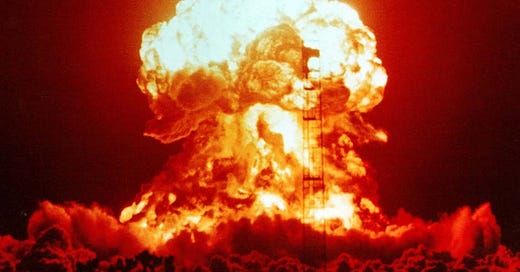As many people have noted – most recently Benjamin Schwarz and Christopher Layne writing in Harper’s Magazine – the first major event that set Russia and Ukraine on a collision course was the 2008 Bucharest Summit Declaration. This was when the North Atlantic Council declared in regard to Ukraine and Georgia that “these countries will become members of NATO”.
Putin apparently “flew into a rage”, warning that “if Ukraine joins NATO, it will do so without Crimea and the eastern regions. It will simply fall apart.”
The decision to include the line about Ukraine in the Declaration was made at the behest of the US against significant opposition from France and Germany. In fact, President Bush had “lobbied hard” for starting Ukraine’s accession process then and there, but was unable to persuade key allies – so the line in the Declaration actually represents a compromise.
Why were key allies so opposed? Angela Merkel later recalled that she was very sure “Putin is not going to just let that happen. From his perspective, that would be a declaration of war.” US officials were perfectly aware of this too. A memo sent shortly before the Summit by the US Ambassador to Russia had clarified that “Ukrainian entry into NATO is the brightest of all red lines for the Russian elite (not just Putin)”.
What’s more, opinion polls at the time showed that a large majority of Ukrainians were opposed to NATO membership.
So despite opposition from Russia (a nuclear-armed power), from key allies France and Germany, and from the majority of Ukrainians, Bush “lobbied hard” to begin Ukraine’s accession process. I don’t know about you, but this strikes me as incredibly reckless.
After the Bucharest Summit, the US continued to act recklessly – backing a pro-Western coup; training and equipping Ukraine’s armed forces; including the country in joint NATO exercises despite Russian protests; recognising it as an Enhanced Opportunities Partner; signing a charter supporting its “aspirations to join NATO”; and encouraging Zelensky to crack down on the pro-Russian opposition.





